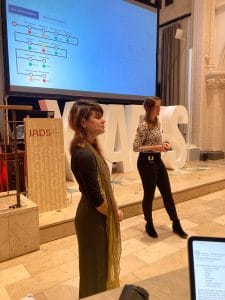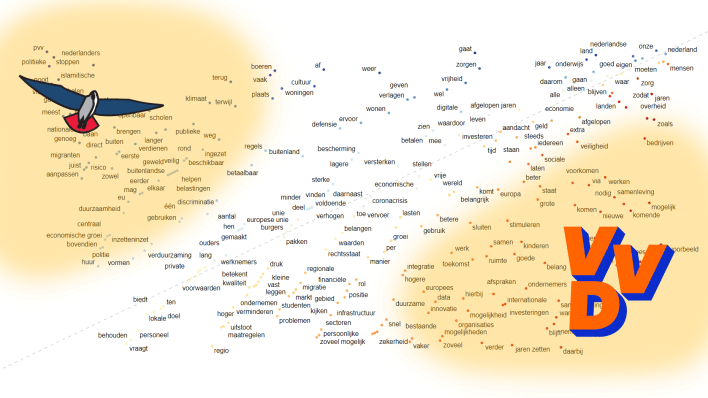JADS trainees optimize lead times for the Dutch Criminal Justice Chain
Posted on
Two PDEng trainees from JADS designed a twofold approach to monitor and decrease the lead times of the Dutch Criminal Justice chain. The project was formally concluded with a presentation at JADS on October 8, 2021, and it was well-received!
Gaining insight in bottlenecks
Bottlenecks create delays and long lead times and can be burdensome for the employees of the chain partners and the citizens. Shortening the lead times is crucial for improving the capacity management and process of Criminal Justice. Making the process leaner and more efficient can serve society better and increase public safety. That’s why Eelke and Elena designed a twofold approach to monitor and decrease the lead times of the Dutch Criminal Justice chain.
The trainees collaborated with the Ketenpact Oost-Brabant, a collaboration within the Criminal Justice Chain, that aims to decrease the lead times and to ensure smooth collaboration and communication between the different chain partners in Oost-Brabant, such as the Police, the Public Prosecutor, and the Courts.
“By gaining insight into the bottlenecks in the lead times, we also hope to learn something about the predictability of the various business flows”, says Leo Melkert from the Public Prosecutor. “We wanted to have more insights on the factors that influence lead times of different cases”, says Nicole van Geel from the Ketenpact Oost-Brabant. Could the available data facilitate and be used to improve monitoring of the lead times?
Twofold approach

Elena Stamatelou and Eelke Bakker, PDEng trainees at JADS, during their final presentation
The two trainees explored two different approaches, both to monitor and optimize the lead times. “I used computer simulations to model the development of queues and waiting times. By tweaking the parameters, the user can see the impact of possible policy changes on the lead times”, says Eelke Bakker, PDEng trainee at JADS. “I modeled the paths of the cases within the Criminal Justice Chain, estimated their lead times and the number of upcoming cases per chain partner”, says Elena Stamatelou, PDEng trainee at JADS.
One step closer to a data-driven solution
The project was formally concluded with a presentation at JADS and it was well-received by an audience with, amongst others, representatives of the Police, Public Prosecutor, Courts, Probation Office, the managing board of the Ketenpact Oost-Brabant. This collaboration brought the Criminal Justice Chain one step closer to a data-driven solution, which will make use of their existing data to facilitate lead time monitoring and optimization of their processes.
“In the final project, we got to apply the skills we obtained during the first year of the PDEng and challenged ourselves to develop even more as professionals,” concludes Elena Stamatelou.
More information
Want to know more about the PDEng program? Find out more!
Want to know about running a PDEng project for your company or organization? Read more here!



